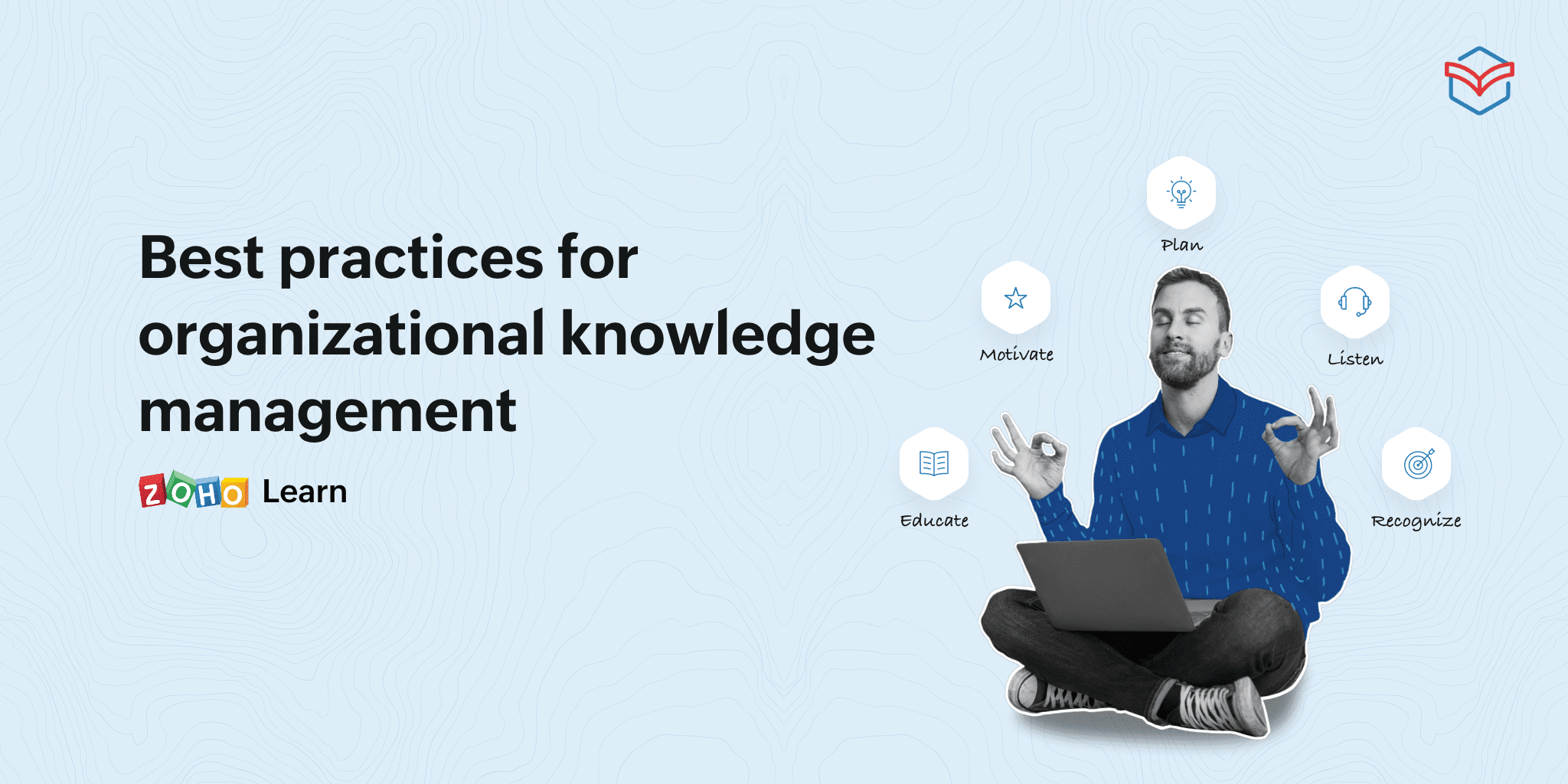- HOME
- Knowledge Management
- Best practices for organizational knowledge management
Best practices for organizational knowledge management
- Last Updated : October 11, 2023
- 2.2K Views
- 2 Min Read

Implementing a knowledge management program for your organization improves the expertise of your employees and boosts the overall productivity of your workforce. However, creating a plan that suits the needs of your organization can be a challenge. Establishing a well-informed strategy helps to streamline the process and ensures you fulfill your long-term objectives of knowledge management.
Here are some of the best practices for knowledge management that can help bring value to your organization's knowledge base.
Understand your organization's people and culture
Since the people in your organization are essential to implementing a knowledge management process, it is important to assess the people and culture of your organization. Evaluate the skills, expertise, and collaboration capabilities of the stakeholders in your organization to identify specific problems and strategize a knowledge management process.
Implement a knowledge management strategy in planned steps
Your knowledge management system should flow into your organization's existing business process. Build a framework in gradual and measured steps to help employees adjust to the changes, analyze any mistakes or inefficient processes during adoption, and improve your organization's knowledge management.
Set policies for knowledge management
When knowledge is shared across your organization, there is a risk of leaking information to an unintended audience or even to your competitors. Secure your knowledge management process with policies to regulate the process and ensure that valuable information is not lost or misused.
Reward employees who contribute regularly
Recognizing the efforts of your employees can keep them involved and maximize the benefits of your knowledge management program in the long run. Provide regular feedback, appreciation, and special benefits to motivate existing contributors and also encourage other employees to increase their contributions.
Measure results and focus on continuous improvement
Reviewing your knowledge management system with regular meetings and usage analysis helps compare your goals with actual outcomes. Get insights at different levels like creation, sharing, and usage to measure the effectiveness of your program, identify gaps, and make improvements to your knowledge management process.


